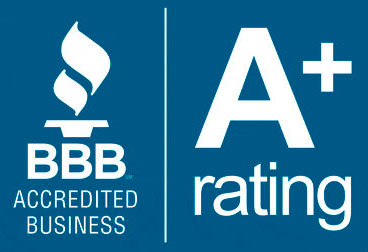1. Create a moving timeline: Start planning your move well in advance and create a timeline that outlines all the tasks you need to complete before moving day.
2. Declutter and organize: Sort through your belongings and get rid of items you no longer need or use. Donate, sell, or discard them appropriately.
3. Create a moving budget: Determine your moving budget and allocate funds for expenses such as packing supplies, movers’ fees, transportation, and any additional services you may require.
4. Research moving companies: Research and obtain quotes from reputable moving companies. Compare their services, pricing, and customer reviews to make an informed decision.
5. Notify relevant parties: Inform your landlord (if applicable), utilities companies, and other service providers about your move to arrange for disconnections, transfers, or new services at your new address.
6. Transfer or cancel subscriptions: Update your address for magazine subscriptions, online shopping accounts, and any other subscriptions or memberships you have.
7. Gather important documents: Collect and organize important documents such as identification, medical records, insurance policies, and school records to ensure they are easily accessible during and after the move.
8. Notify schools and healthcare providers: If you have children, inform their school about the upcoming move and arrange for necessary transfers. Also, notify your healthcare providers and find new ones in your new location if needed.
9. Pack strategically: Start packing well in advance and label each box with its contents and the room it belongs to. Pack items you use infrequently first and prioritize essentials for easy access upon arrival.
10. Obtain packing supplies: Gather packing materials such as boxes, bubble wrap, packing paper, tape, and markers. You can purchase them from moving supply stores or ask local businesses for spare boxes.
11. Change your address: Visit your local post office or go online to update your address with the USPS. Notify banks, credit card companies, and other relevant institutions as well.
12. Secure valuable items: Keep important documents, jewelry, and other valuable items with you rather than packing them with the rest of your belongings.
13. Make arrangements for pets: If you have pets, make arrangements for their transportation and any necessary vaccinations or documentation required by your new location.
14. Arrange for childcare: If you have young children, consider arranging for childcare on moving day to minimize disruptions and ensure their safety.
15. Plan for the moving day: Coordinate with your moving company or helpers regarding the logistics of moving day, including the time, parking, and any specific instructions.
16. Pack an essentials box: Pack a box with essential items such as toiletries, a change of clothes, medications, snacks, and important documents that you’ll need immediately upon arrival at your new home.
17. Clean and prepare your new home: Clean your new home before moving in, ensuring it’s ready for you and your belongings. Arrange for any necessary repairs or renovations in advance.
18. Disconnect appliances and electronics: Unplug and properly prepare appliances and electronics for transportation. Take photos or label cords to ensure easy reinstallation.
19. Take measurements: Measure doorways, stairwells, and other relevant spaces in your new home to ensure that large furniture and appliances can fit through.
20. Set up utilities: Contact utility providers in your new location to set up services such as electricity, gas, water, internet, and cable. Schedule the installation dates to coincide with your move-in date.
21. Pack a first-night box: Pack a separate box with essentials for your first night in your new home, including bedding, toiletries, and basic kitchen supplies.
22. Update insurance policies: Inform your insurance providers about your move and update your policies accordingly, including homeowner’s, renter’s, and auto insurance.
23. Take inventory: Make a detailed inventory of your belongings, noting their condition before the move. This will come in handy for insurance purposes and to ensure that everything arrives safely.
24. Confirm details with the moving company: Double-check the moving arrangements with your chosen moving company, including the date, time, and any specific instructions you’ve discussed.
25. Relax and enjoy your new home: Finally, on moving day, take a deep breath, stay organized, and trust that everything will go smoothly. Once you’re settled in your new home, take the time to explore your surroundings and enjoy the exciting new chapter in your life!
Remember, this checklist serves as a general guide. Adapt it to your specific needs and circumstances to ensure a successful and stress-free move. Good luck with your relocation!
















